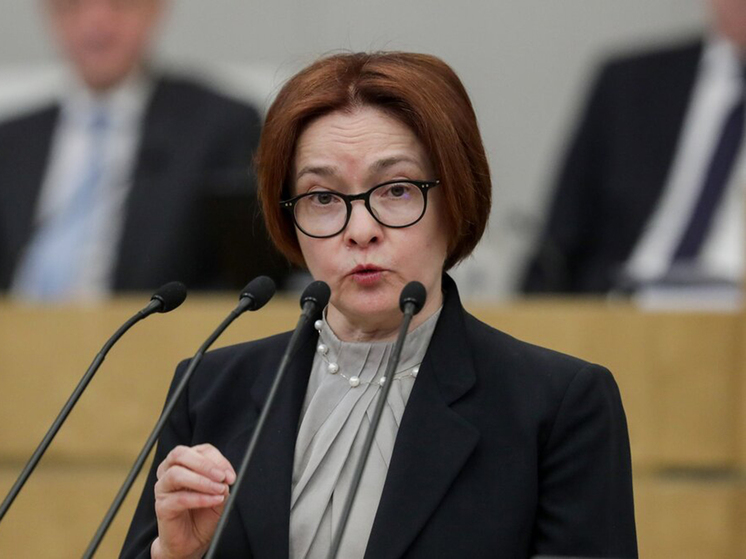The Central Bank cannot yet reduce the rate: inflation does not want to decline
“Contrary to popular belief, tight monetary policy in itself does not stifle economic growth,” said Elvira Nabiullina . This thesis, supported by a high key rate, has been consistently spent by the head of the Central Bank for months, encountering sincere misunderstanding on the part of the general public. And now, at the traditional Friday press conference on the rate, Nabiullina emphasized it.

In an overheated economy (although the peak of overheating has passed in the fall), the regulator cannot afford to take risks by reducing the rate, Nabiullina argues: “Additional growth in demand (including for labor resources) results in a much more significant acceleration of inflation.” Pro-inflationary factors remain: first of all, high consumer and investment activity, supported by a significant increase in household incomes. In March, the current rate of price growth decreased to 4.5% after 6.3% in February, but this is largely due to the seasonal reduction in prices for fruits and vegetables. Accordingly, today the conditions have not yet matured for the Central Bank to take the first step towards easing monetary policy (monetary policy), which has long been expected of it.
The decision to keep the rate at 16% per annum by the regulator I took it for the third time in a row. The last time it changed was in December 2023 — then the Central Bank increased it from 15% to 16% per annum.
Here are a few more points from Nabiullina: the labor shortage has increased in most industries. Today it remains a key constraint on the expansion of goods and services; increased incomes allow citizens to simultaneously increase savings and consumption; lending is growing at a high rate (in particular, due to auto loans and credit cards), preventing a sustainable slowdown in inflation; artificially fixing the ruble exchange rate will harm the Russian economy, as it will lead to excessive and continuous growth of imports; The Bank of Russia notes the increased risks of secondary sanctions and the complication of international payments; despite the high growth rates of global GDP, there are signs of a slowdown; Export volumes exceeded forecasts due to oil and gas supplies and higher oil prices.
Nabiullina did not rule out that if in the second half of the year inflation approaches the target of 4% (probably it will be 4.3%-4.8%), the regulator may take a course towards easing monetary policy. Otherwise, the rate will remain at the current level of 16%. “We do not yet see economic trends characteristic of disinflation,” noted the head of the Central Bank.
Answering the question of what factors influence the ruble exchange rate today in the first place, Nabiullina named two main ones: the trade balance (the ratio of exports and imports) and the effect of the regulator raising the key rate. As for the mandatory sale of foreign currency earnings, “the importance of this measure for the market is secondary; rather, it has a psychological significance for economic agents.” If we compare the quantities in which companies sold foreign currency earnings before the introduction of the measure (the corresponding presidential decree was signed in October 2023) and after it, then these volumes are approximately the same.
During Nabiullina’s meeting with journalists, a question was asked from a MK correspondent regarding misselling by banks (often large and reputable) in relation to clients. It should be clarified here: we are talking about unfair sales practices (misselling), in which information about a product (service) is deliberately distorted, as a result of which the buyer is misled about the need to purchase it. So, today human rights activists are recording an increase in this practice, while according to the Central Bank, in the first quarter the number of complaints from individuals about it decreased by 70%. Is it possible to find out whether any bank has been fined under this article, and what the procedure for fining for misselling generally looks like?
Nabiullina admitted that this shameful phenomenon has not been eradicated from the financial environment, although complaints about it have become less frequent. Alas, the Central Bank does not have enough powers to prohibit banks from selling products for which they do not provide people with enough information. There are fines, but they are small.
“You can make a million violations and pay a million rubles,” noted the head of the regulator. — This is not very sensitive for a large bank against the background of profits. Fines for dishonest enrichment and deception of clients should be increased to 1% of capital. To do this, you need to pass a law.”


